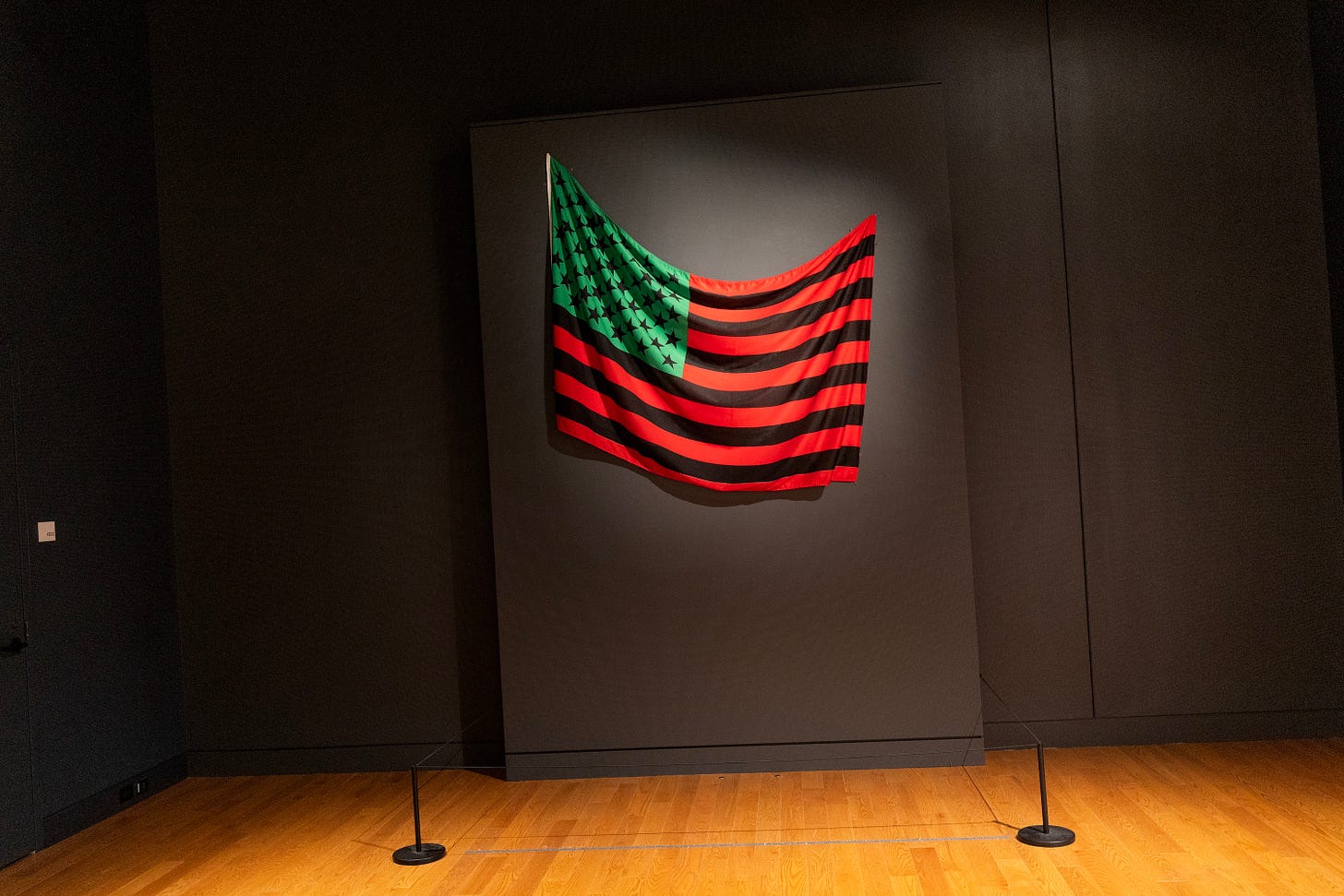Five Things: Facial Recognition, Happy History, Anti-Semitism, Smartphoneless Kids, Fandom
It's Sunday. Read this now.
Hello and welcome back to Five Things!
Just another week with some fun, some not so fun, but still pretty interesting topics. Facial recognition now nails your party pic to your passport with 99% accuracy, Trump wants museums to swap history for fairy tales, anti-Zionism is basically performance art for the perpetually outraged and anti-semitism is popping up everywhere, left and right, while kids just want to play outside if we’d let them, and music’s “authenticity” is whatever the TikTok algorithm says it is.
This Sunday is a really special one. 22 years ago today our oldest child was born. I can still remember the moment when she was born and I became a father for the first time. She has grown from a small baby into a wonderful, smart young women. She makes me very proud and I am so happy to be her father.
Have a great Sunday and read these Five Things now!
Your Face Tomorrow
Like many other forms of AI, facial-recognition software received a shot in the arm from the maturation of artificial neural networks such as the large language models powering systems like ChatGPT. The process used by most current methods contains several steps. First, the software translates a photo or video of your face into a set of measurements—the distance between your eyes, between your nose and your lips, and so on. Then this “faceprint” is fed into an artificial neural network. This system uses statistical methods to match your faceprint to others in its database. Programmers “train” the system by rewarding it for correct matches and penalizing it for misses. The model generates results in the same way that LLMs produce language—by processing a large database in order to obtain statistical relationships among entities. Eventually, and with a sufficiently large database, the system can reliably match one image of a face with another. Given adequate lighting and a relatively clear picture, software can match your passport photo with your appearance in a party photo on a friend’s Facebook page, for example, 99 percent of the time.
I remember when the UK started to setup cameras in public spaces and that sparked a debate in Germany about obvious privacy concerns. But that was a few decades ago and basically still the age of innocence when it comes to surveillance cameras. Now add AI to it and the ramifications are massive.
Trump Demands the Smithsonian Deliver Shiny, Happy History
There are beautiful, inspiring stories in the American past. But there are also these many horrors, dark shadows right alongside the bright. A historian’s duty is to see them all, not to cover our eyes and ears and tell only uplifting stories. And as a historian, I am not taking critique from the people still putting up “Fuck Your Feelings” bumper stickers and t-shirts, from the people who still want to argue “Heritage, Not Hate” while flying a Confederate battle flag repopularized for opposition to the Civil Rights Act, from the people producing propaganda cartoons to spoon white-supremacist ideas into U.S. classrooms.
It’s not surprising that I am appalled by something Donald Trump does. I used to study history and American history was one of my particular fields of interest. Every attempt to whitewash history must backfire.
The Holiest Hatred
Anti-Zionism today is not, in any meaningful sense, a contentful position in the space of reason. It is a creed. Anti-Zionism begins with a single article of faith—that Israel is essentially evil—and no fact can breach that belief. Every libel against Israel is not merely plausible but imbued with special gravity, for it confirms the dogma. Circulating the libel becomes a ritual act, a reenactment of faith.
When substance runs thin, it is supplied by the priestly class of anti-Israel “experts”—the human-rights functionaries and academic settler-colonial theorists—forever refining the language of accusation, composing new gospels of guilt. In the culminating gesture of this liturgy, they raise the suffering Palestinian as an icon, crucifying him again and again in expiation for the sins of colonialism.
Anti-Semitism is getting louder and more agressive in the Western world. This has to stop.
What Kids Told Us About How to Get Them Off Their Phones
This digital technology has given kids access to virtual worlds, where they’re allowed to roam far more freely than in the real one. About 75 percent of kids ages 9 to 12 regularly play the online game Roblox, where they can interact with friends and even strangers. But most of the children in our survey said that they aren’t allowed to be out in public at all without an adult. Fewer than half of the 8- and 9-year-olds have gone down a grocery-store aisle alone; more than a quarter aren’t allowed to play unsupervised even in their own front yard.
Yet these are exactly the kinds of freedoms that kids told us they long for. We asked them to pick their favorite way to spend time with friends: unstructured play, such as shooting hoops and exploring their neighborhood; participating in activities organized by adults, such as playing Little League and doing ballet; or socializing online. There was a clear winner.
I keep telling my kids how bored we were without smartphones and how I read what was written on the milk carton or how we played until the street lights came on. While our kids spend plenty of time on their smartphones and their tablets, they also do stuff unsupervised, like riding their bikes to school or taking the subway alone. At the same time, I cannot imagine how worried my parents must have been when I didn’t show up at the right time and they didn’t have the chance to call or text…
Welcome to the Era of Astroturf Fandom
The problem is that, increasingly, no one can tell what’s real and what’s been staged. Was it actually a viral groundswell that made a track blow up, or was it ten million dollars of TikTok placements and carefully seeded playlists? The whole notion of an organic hit becomes impossible when “organic” itself has fallen under the shadow of suspicion thanks to those same poptimist critics who disdain the idea that music appreciation should have any tangible values whatsoever. In its absence we mistake ubiquity for authenticity, because we’ve lost the ability to imagine what unforced, unmanufactured cultural excitement would even look like. That yearning for a “song of the summer” is really a yearning for proof that culture can still just happen to us, rather than being spoon-fed from above. But nobody really believes in that sort of thing anymore. The TikTok rollout for a particular song might be directly stage managed by a social media marketing agency, or it might actually emerge from real users who have developed natural affinity for a particular song. But because the platform is ruled by algorithms, and because the concepts of individual taste and subcultures have been ground under the heel of mass popularity, there’s barely any difference.
We are still trying to grasp how social media works and affects us. The mighty algorithm has replaced the DJ who served as a gatekeeper back in the days when radio mattered so much more. Everything is happening faster and in parallel, which I find quite fascinating.
That’s it. Have a great Sunday! If you missed last Sunday’s edition of Five Things, have a look here:
— Nico







